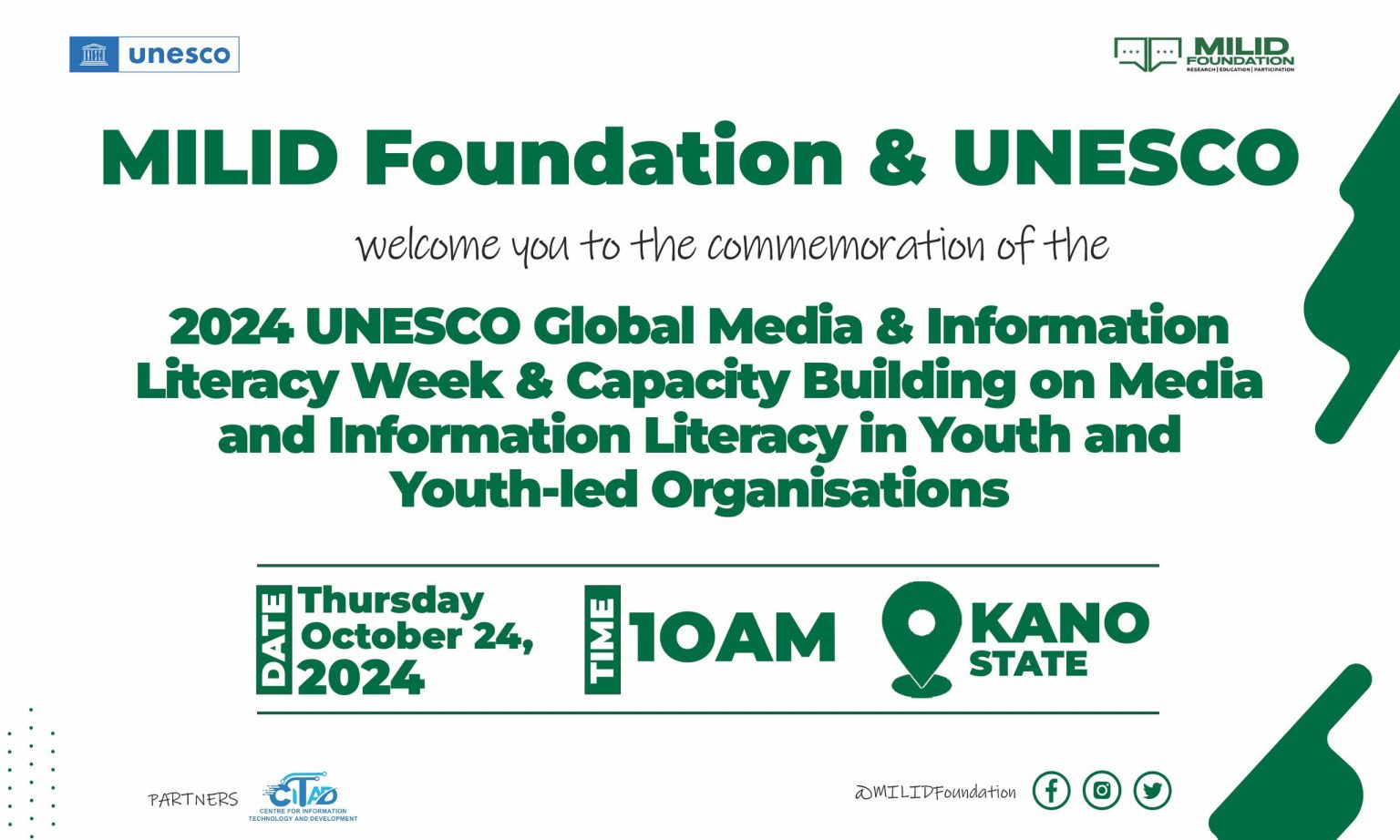By Press Release
The Media and Information Literacy and Intercultural Dialogue Foundation (MILID Foundation) in collaboration with UNESCO Abuja will mark the 2024 Global Media and Information Literacy (MIL) Week in Kano.
The event holds from October 22-24. It will feature a two-day MIL capacity building training for youth and youth-led organisations in Northwest Nigeria, culminating with a high-level advocacy gathering on the importance of media and information literacy.
The Global MIL Week is an annual event organised by UNESCO worldwide to raise awareness and celebrate the progress achieved towards Media and Information Literacy for all. The week, observed every October, features a series of activities by stakeholders, including a major event by UNESCO’s head office in partnership with a Member State.
The global theme for this year, “The new digital frontiers of information: Media and Information Literacy for public-interest information,” highlights the importance of MIL for public good, particularly for young people.
“Media and Information Literacy is a crucial skill for all consumers of media and information, particularly in countries like Nigeria with a burgeoning youth population that requires critical thinking skills and competencies in their engagement and interaction both online and offline,” said Chiamaka Okafor, Executive Director, MILID Foundation.
Speaking about the importance of such interventions, Head of Office and Representative, UNESCO Abuja Office, Mr. Abdourahamane Diallo said, “UNESCO understands the vital role youths and youth-led organisations play in the information sharing space. With Media and Information Literacy skills, the youths are strategically placed to engage in youth-led advocacy for a better, peaceful, integrated, prosperous and more informed world.”
Representatives of youth and youth-led organisations at this maiden national MIL and youth engagement are expected from Jigawa, Kaduna, Kano, Katsina, Kebbi, Sokoto, and Zamfara states.
The high-level advocacy gathering will feature government officials including Kano State commissioners for Information and Education, academics, media, civil society organisations and students.

